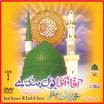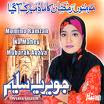Most of the early Shia as well as Zaydis differed only marginally from mainstream Sunnis in their views on political leadership, but it is possible in this sect to see a refinement of Shīa doctrine. Early Sunnis traditionally held that the political leader must come from the tribe of Muhammad—namely, the Quraysh. The Zaydīs narrowed the political claims of the Ali's supporters, claiming that not just any descendant of 'Alī would be eligible to lead the Muslim community (ummah) but only those males directly descended from Muḥammad through the union of 'Alī and Fāṭimah. But during Abbasid revolts, other Shīa, who came to be known as imāmiyyah (followers of the Imams) follow theological school of Ja'far al-Sadiq. They asserted a more exalted religious role for Imams and insisted that, at any given time, whether in power or not, a single male descendant of 'Alī and Fāṭimah was the divinely appointed Imam and the sole authority, in his time, on all matters of faith and law. To those Shīʿites, love of the imams and of their persecuted cause became as important as belief in God’s oneness and the mission of Muhammad.[21]
Later most of Shia, including Twelver and Ismaili, became Imami. Imamis Shia believe that Imams are the spiritual and political successors to Muhammad.[21] Imams are human individual who not only rules over the community with justice, but also is able to keep and interpret the Divine Law and its esoteric meaning. Muhammad and Imams' words and deeds are a guide and model for the community to follow; as a result, they must be free from error and sin, and must be chosen by divine decree, or nass, through Muhammad.[22][23]
According to this view, there is always an Imam of the Age, who is the divinely appointed authority on all matters of faith and law in the Muslim community. ‘Alī was the first Imam of this line, the rightful successor to Muhammad, followed by male descendants of Muhammad through his daughter Fatimah Zahra.[21]
This difference between following either the Ahl al-Bayt (Muhammad's family and descendants) or the Caliph Abu Bakr has shaped Shia and non-Shia views on some of the Qur'an, the Hadith (narrations from Muhammad) and other areas of Islam. For instance, the collection of Hadith venerated by Shia Muslims is centered on narrations by members of the Ahl al-Bayt and their supporters, while some Hadith by narrators not belonging to or supporting the Ahl al-Bayt are not included (those of Abu Huraira, for example). According to the Sunnis, Ali was the third successor to Abu Bakr however, the Shia maintain that Ali was the first divinely sanctioned "Imam," or successor of Muhammad. The seminal event in Shia history is the martyrdom in 680 CE at the Battle of Karbala of Ali's son Hussein, who led an non-allegiance movement against the defiant caliph (71 of Hussein's followers were killed as well). Hussein came to symbolize resistance to tyranny.
It is believed in Twelver and Ismaili Shī‘ah Islam that ‘aql, divine wisdom, was the source of the souls of the prophets and imams and gave them esoteric knowledge called ḥikmah and that their sufferings were a means of divine grace to their devotees.[3][21][24] Although the imam was not the recipient of a divine revelation, he had a close relationship with God, through which God guides him, and the Imam in turn guides the people. Imamate, or belief in the divine guide is a fundamental belief in the Twelver and Ismaili Shī‘ī branches and is based on the concept that God would not leave humanity without access to divine guidance.[25]
[edit] Ismah
Ismah is the concept of infallibility or "divinely bestowed freedom from error and sin" in Islam.[26] Muslims believe that Muhammad and other prophets in Islam possessed ‘iṣmah. Twelver and Ismaili Shī‘ah Muslims also attribute the quality to Imāms as well as to Fatima Zahra, daughter of Muhammad, in contrast to the Zaidi, who do not attribute ‘ismah to the Imāms.
According to Shī‘ah theologians, infallibility is considered a rational necessary precondition for spiritual and religious guidance. They argue that since God has commanded absolute obedience from these figures they must only order that which is right. The state of infallibility is based on the Shī‘ah interpretation of the verse of purification.[Qur'an 33:33][27] Thus they are, the most pure ones, the only immaculate ones preserved from, and immune to, all uncleanness.[28] It doesn't mean that supernatural powers prevent them from committing a sin, but it is due to the fact that they have an absolute belief in God so that they find themselves in presence of God.[29] They have also complete knowledge about God's will. They are in possession of all the knowledge brought by the angels to the prophets (nabi) and the messengers (Rasul). Their knowledge encompasses the totality of all times. Thus they act without fault in religious matters.[30]




















